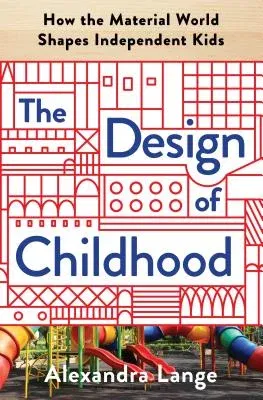From building blocks to city blocks, an eye-opening exploration of how
children's playthings and physical surroundings affect their
development.
Parents obsess over their children's playdates, kindergarten curriculum,
and every bump and bruise, but the toys, classrooms, playgrounds, and
neighborhoods little ones engage with are just as important. These
objects and spaces encode decades, even centuries of changing ideas
about what makes for good child-rearing--and what does not. Do you
choose wooden toys, or plastic, or, increasingly, digital? What do
youngsters lose when seesaws are deemed too dangerous and slides are
designed primarily for safety? How can the built environment help
children cultivate self-reliance? In these debates, parents, educators,
and kids themselves are often caught in the middle.
Now, prominent design critic Alexandra Lange reveals the surprising
histories behind the human-made elements of our children's pint-size
landscape. Her fascinating investigation shows how the seemingly
innocuous universe of stuff affects kids' behavior, values, and health,
often in subtle ways. And she reveals how years of decisions by
toymakers, architects, and urban planners have helped--and
hindered--American youngsters' journeys toward independence. Seen
through Lange's eyes, everything from the sandbox to the street becomes
vibrant with buried meaning. The Design of Childhood will change the
way you view your children's world--and your own.

